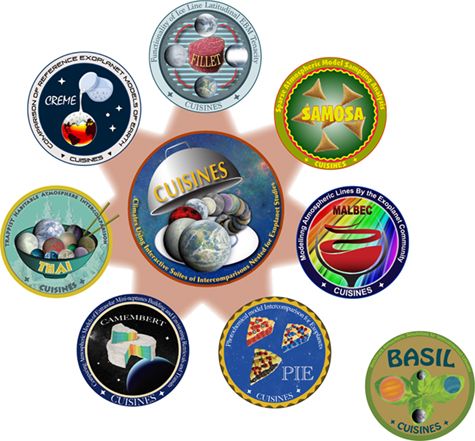Early Career Scientist Spotlight
Dr. Thomas Fauchez (he/him/his)
Planetary Scientist
Planetary Systems Laboratory (693)
Did you always know that you wanted to study exoplanets?
Exoplanets, no. This interest is quite recent for me, as of about 10 years ago. But I’ve wanted to be an astrophysicist ever since I was 8 years old, which puts us back in 1995. Coincidentally, this is the year of the discovery of the first exoplanet around a Sun-like star by Drs. Michel Mayor and Didier Queloz.
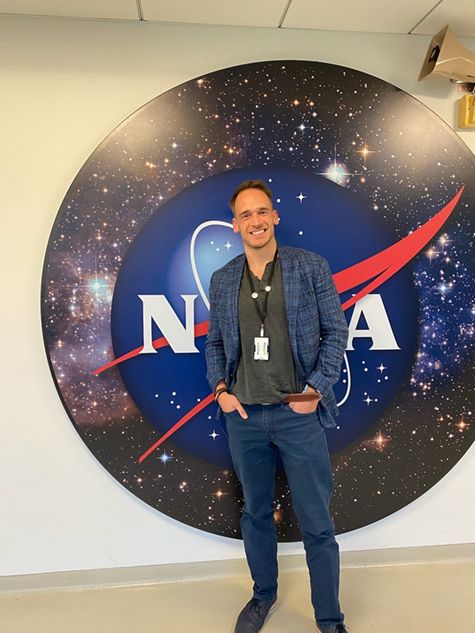
Credit: Thomas Fauchez
What is your research focus?
My research is focused on understanding exoplanets, specifically rocky exoplanets which can be potentially similar to Earth. For that, I use a variety of models such as general circulation models (GCMs), which were originally developed to understand Earth’s climate and have been expanded to simulate exoplanets. I also use 1D photochemical models, and radiative transfer codes such as the Planetary Spectrum Generator (PSG) of which I am proud to be a team member. PSG is indeed developed at NASA Goddard and led by my colleague Dr. Geronimo Villanueva.
With all those models, I can predict different things like the potential habitability of a planet, the detectable presence of biosignatures (e.g., signs of life such as atmospheric gases related to life on Earth like oxygen, ozone, methane etc., and or signs of life as-we-don’t-know-it) and/or technosignatures (signs of technology such as atmospheric pollutants, city lights, etc.).
With my background in Earth Sciences, I understand the value of model intercomparison and I have created the first framework for model intercomparisons in exoplanets named CUISINES (Climates Using Interactive Suites of Intercomparisons Nested for Exoplanet Studies). This is an international project that has started with THAI and now we have CAMEMBERT, CRÈME, FILLET, MALBEC, MOCHA, PIE and SAMOSA onboard CUISINES. Yes, they all have fun acronyms related to gastronomy, another passion of mine! You can see the associated logos in one of the pictures of this article.
Sometimes, I also have the chance to participate in the detection of these exoplanets, providing insights into their potential atmosphere compositions and habitability.
Credit: Jay Friedlander, NASA/GSFC
What aspect of your work excites you the most?
The discoveries! Finding a new exoplanet or assessing its potential habitability is fascinating, it is like a treasure hunt! Being a science-fiction fan is important for that as well as it helps to think outside of the box.
What does a typical day at work look like for you?
A typical day involves many various things – it is never boring! I usually have a lot of emails to answer, which I do first thing in the morning. I then look at the abstracts of exoplanet papers that have been released that day. I spend most of my time analyzing modeling results, debugging scripts, plotting figures and writing papers. Student mentoring is also a significant part of my job. In the middle of the day, I usually go to the gym for 90 minutes. I find the exercise is a great way to disconnect for a bit and come back at work with a fresh mind.
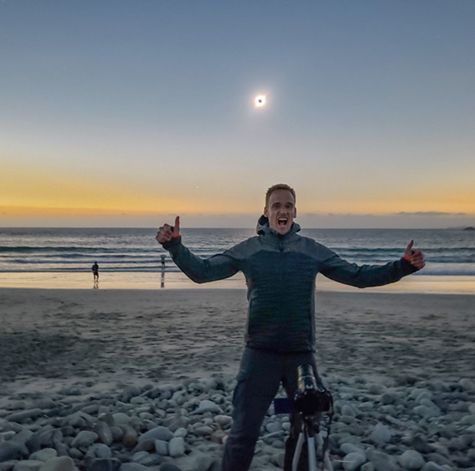
Credit: Thomas Fauchez
What is one thing you wish the public understood about your field of work?
That we are not studying exoplanets in order to colonize them! We study them to better understand our own solar system and Earth. Indeed, we need comparison points, and exoplanets are so diverse that they help us to better understand what makes our planet unique (or not)!
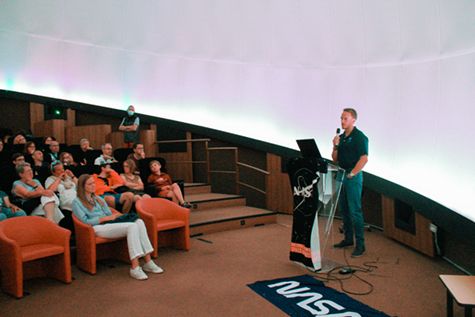
Credit: Christophe Martel, Palais de l’Univers et des Sciences (PLUS)
Where do you see yourself in the near future?
Always at Goddard! This is a dream place to work with so many brilliant minds and a lot of opportunities to collaborate within and across science divisions. I hope one day to obtain a NASA civil servant position and to contribute even more to mission developments. Specifically, I am excited for NASA’s future large observatory concept that will be able to search for signs of life on Earth-size exoplanets orbiting within the habitable zone of Sun-like stars, among many other exciting sciences. This mission hasn’t started yet, but was recently prioritized by the 2020 astro decadal survey.
What is a fun fact about you?
I am also a gym coach. I have coached plenty of my colleagues and friends, helping them to relieve back issues, improving muscle mass etc. Join me at the GSFC gym!
Biography
Home Town:
Gravelines, France (North)
Undergraduate Degree:
Bachelor’s in Physics and Chemistry, ULCO University, Calais, France
Post-graduate Degrees:
Master’s in Space Sciences, Liege University, Liege, Belgium
PhD in Atmospheric Physics, Lille University, Lille, France
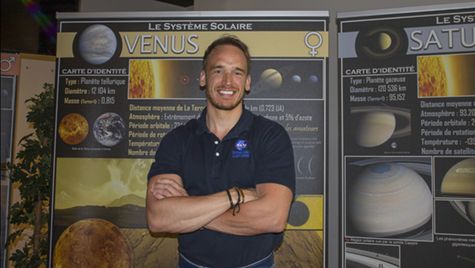
Link to Dr. Fauchez's GSFC Bio

